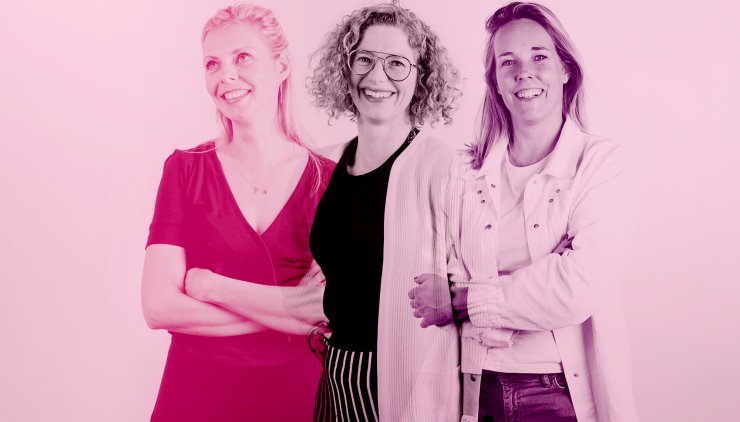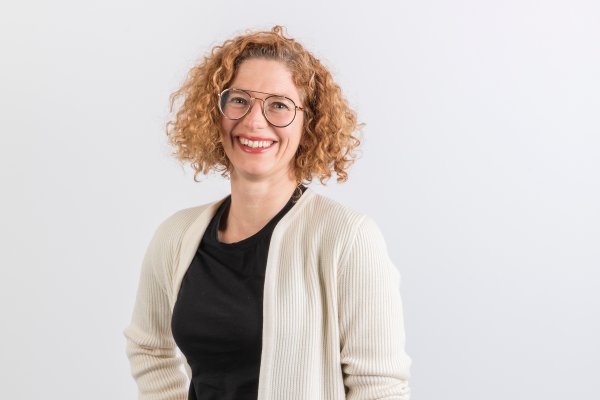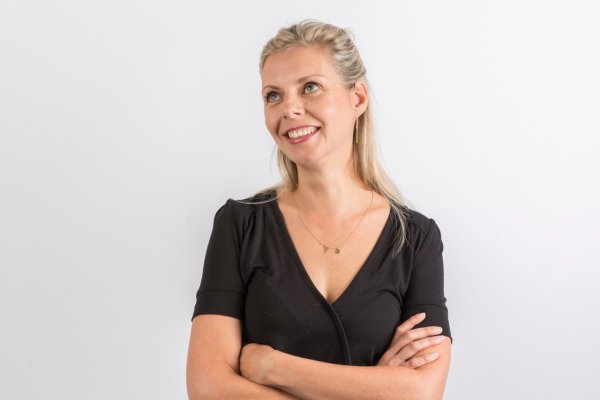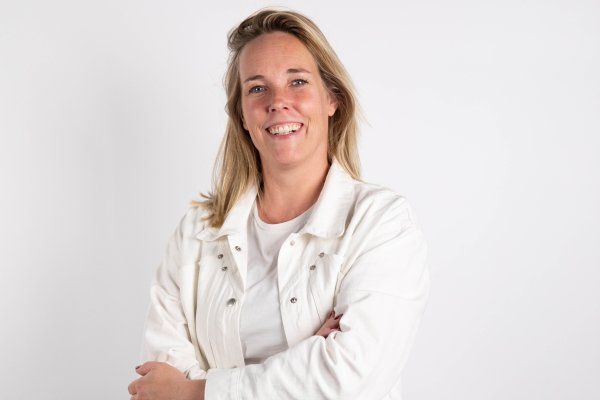-
21 november
-
Wendbaar
'Fontys roles' help with your personal development

The multi-year Fontys for Society strategy introduced in 2021 has set in motion quite a number of changes or reiterated their importance. This affects everyone in their work. For example, more and more coaching skills are required of teachers. And how do you develop a hybrid learning environment in collaboration with the field? How do you set up a solid research project? In addition, Fontys wants to harmonise its business processes and systems wherever possible, which requires extra cooperation and innovation.

Broader view
'The changes require different skills from our professionals,' says Sofie Moresi, programme leader Teacher Professionalisation and co-inventor of the Fontys roles. It was therefore necessary to take a broader look at staff development. Thus - based on (literature) research and tests in the organisation - the eight Fontys roles came into being.
But how do they help? Moresi cites building bridges between education and business as an example, which is needed in hybrid learning environments. This requires a 'connector' - one of the eight roles. If you find that the role of 'connector' suits you well, you can develop that further. For example, by taking a training course for the specific bridge builder in the hybrid learning environment.
The other Fontys roles are also developed in this way. They are always linked to the work that is important within the university: coach, researcher, innovator, knowledge-sharer, expert and inspirer. For all roles, Fontys provides specific development offers.
Pilots at institutes
Moresi and her colleagues tested the Fontys roles at a few institutes. 'We received warm reactions. The roles are in line with educational innovations. They help staff to inspire each other during changes. And, not unimportantly, it is also interesting for teams. It allows them to see which roles are missing and needed.'

Aukje Veenstra, involved in the Improvement Programme for Applied Research (VPO), conducted pilots with the roles at a number of professorships. There, there was a need for a broader view of the 'researcher'. Especially also to enable more career paths for lecturer-researchers. Incidentally, Veenstra initially did this independently of Moresi, with his own roles. 'When we found out that we were working on more or less the same thing, we decided to make one set of Fontys roles together.'
At the professorships too, Veenstra says the concept ensures that everyone's input in practice-based research can be looked at 'more broadly'. 'With this approach, researchers can better determine what is needed in their team. It also provides a foothold and structure for their own development.'
Labour market
There is another third party that was already working on roles in its own way and that was the Personnel and Organisation Department. When they found out that Docentprofessionalisering and VPO were also working on Fontys roles, they decided to work together on this and the current set of Fontys roles came into being.

'As Fontys, we want to be distinctive in this tight labour market,' says Sophie Dekker of P and O. 'By profiling ourselves with these roles, Fontys radiates what talent we are looking for, and that is more than your job title.'
Another plus, according to Dekker, is that the roles strengthen the autonomy of employees. 'That is appreciated. We also want to publicise that outside our walls to appeal to the best people in the market. It means looking at a person's qualities, rather than ticking off hard criteria.'
The cooperation between the three parties - after first working on the roles from within their own departments or programmes - also illustrates, according to the three, one of the ambitions from Fontys for Society: working together beyond one's own walls.
Do you have a question about the Fontys roles or would you like to get started with them? Contact the HR Business Partner of your institute or service or e-mail hrservice@fontys.nl.
